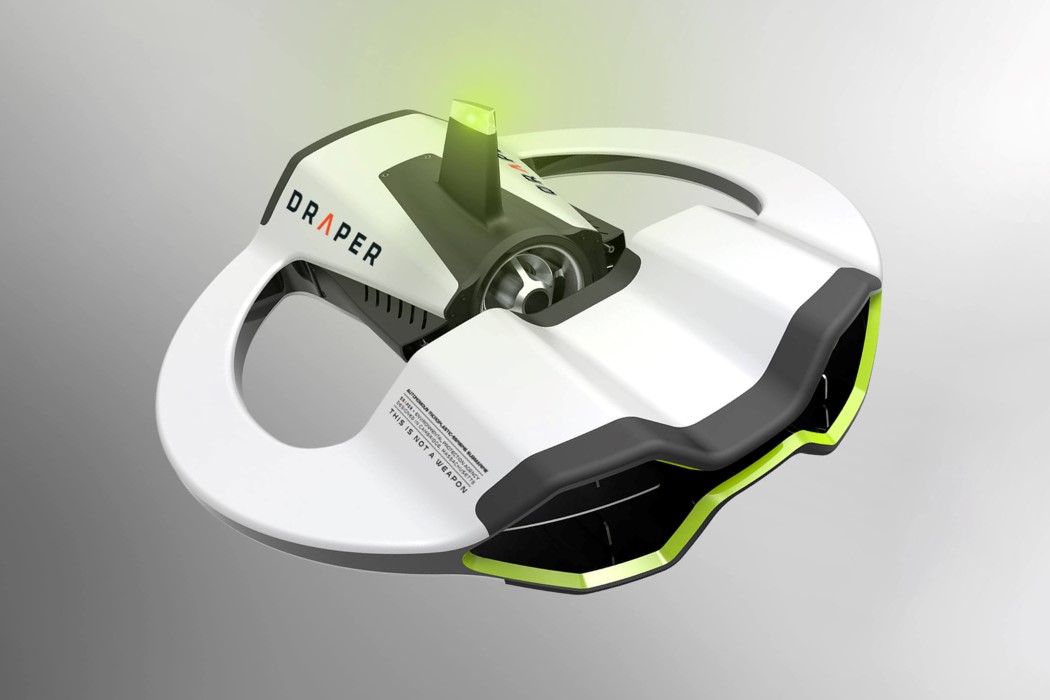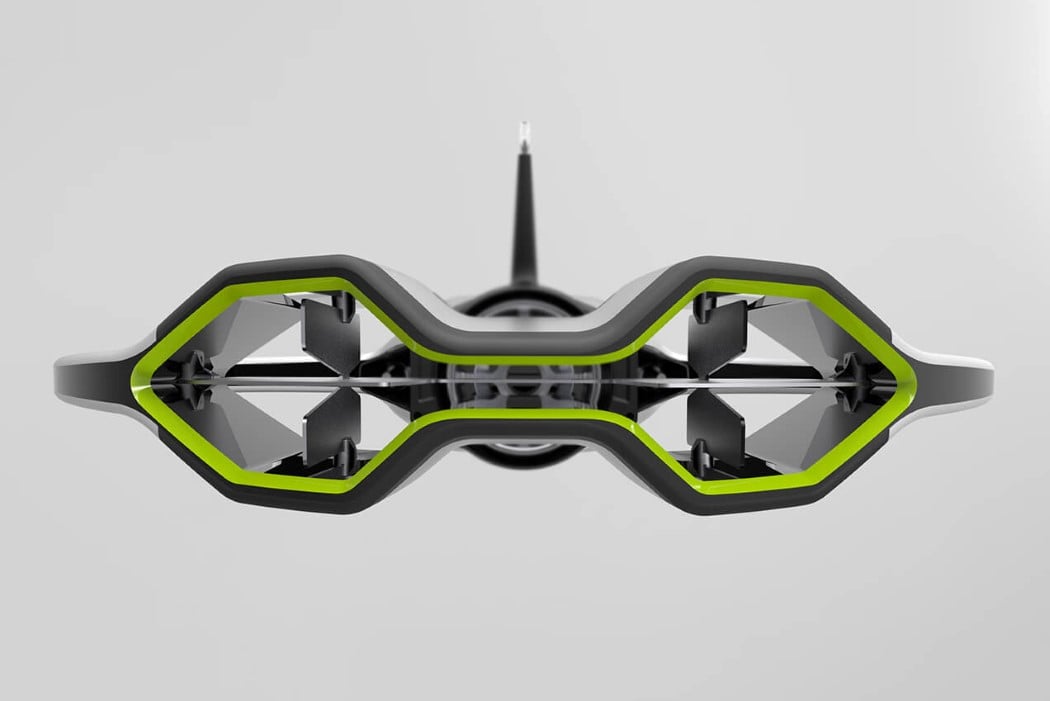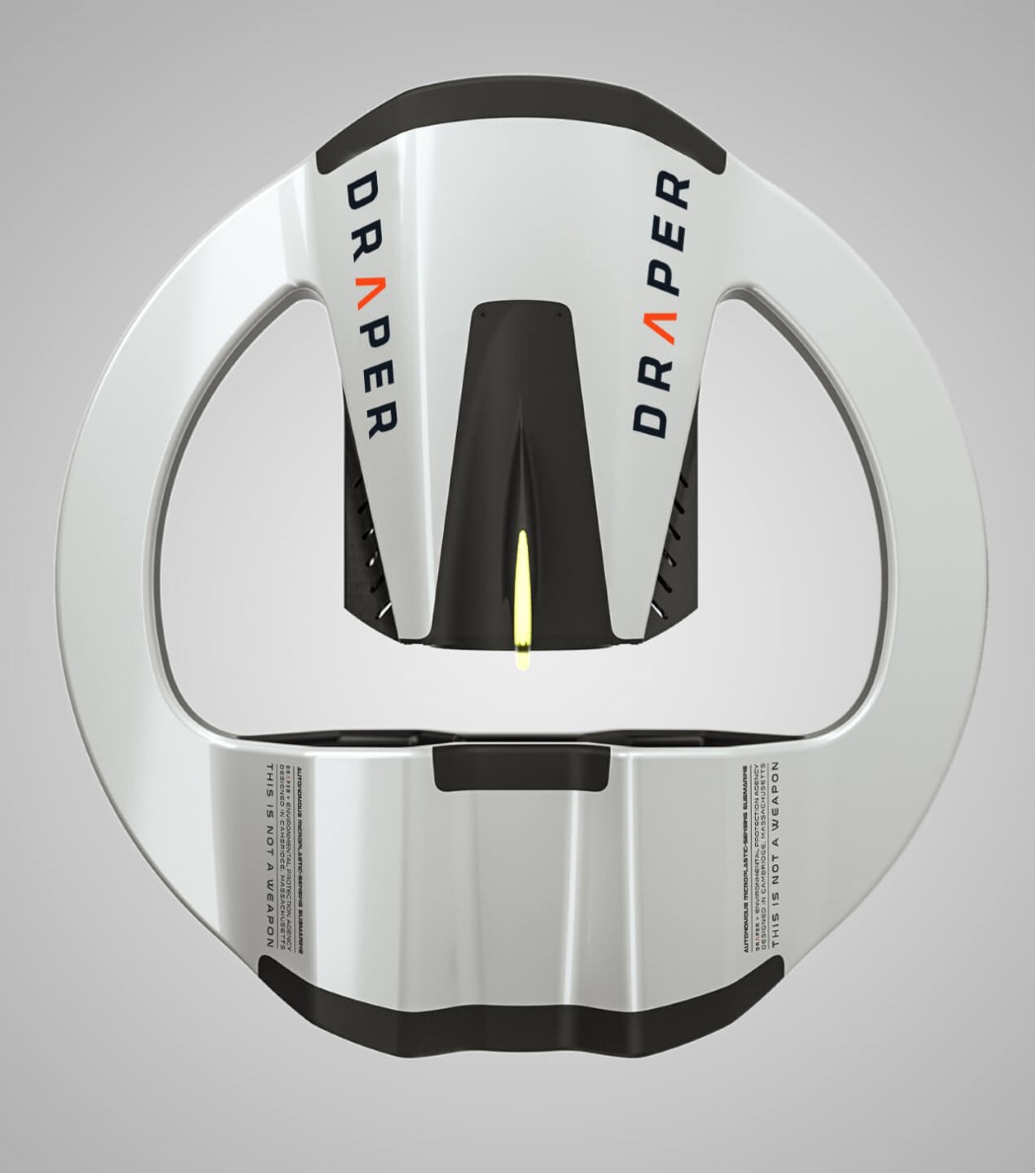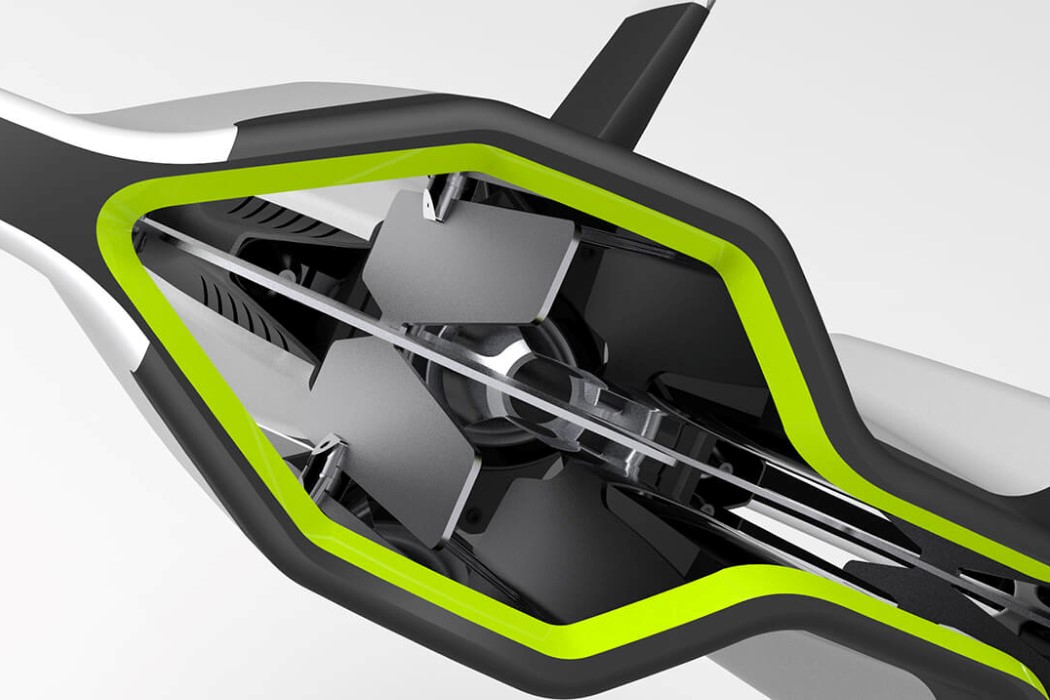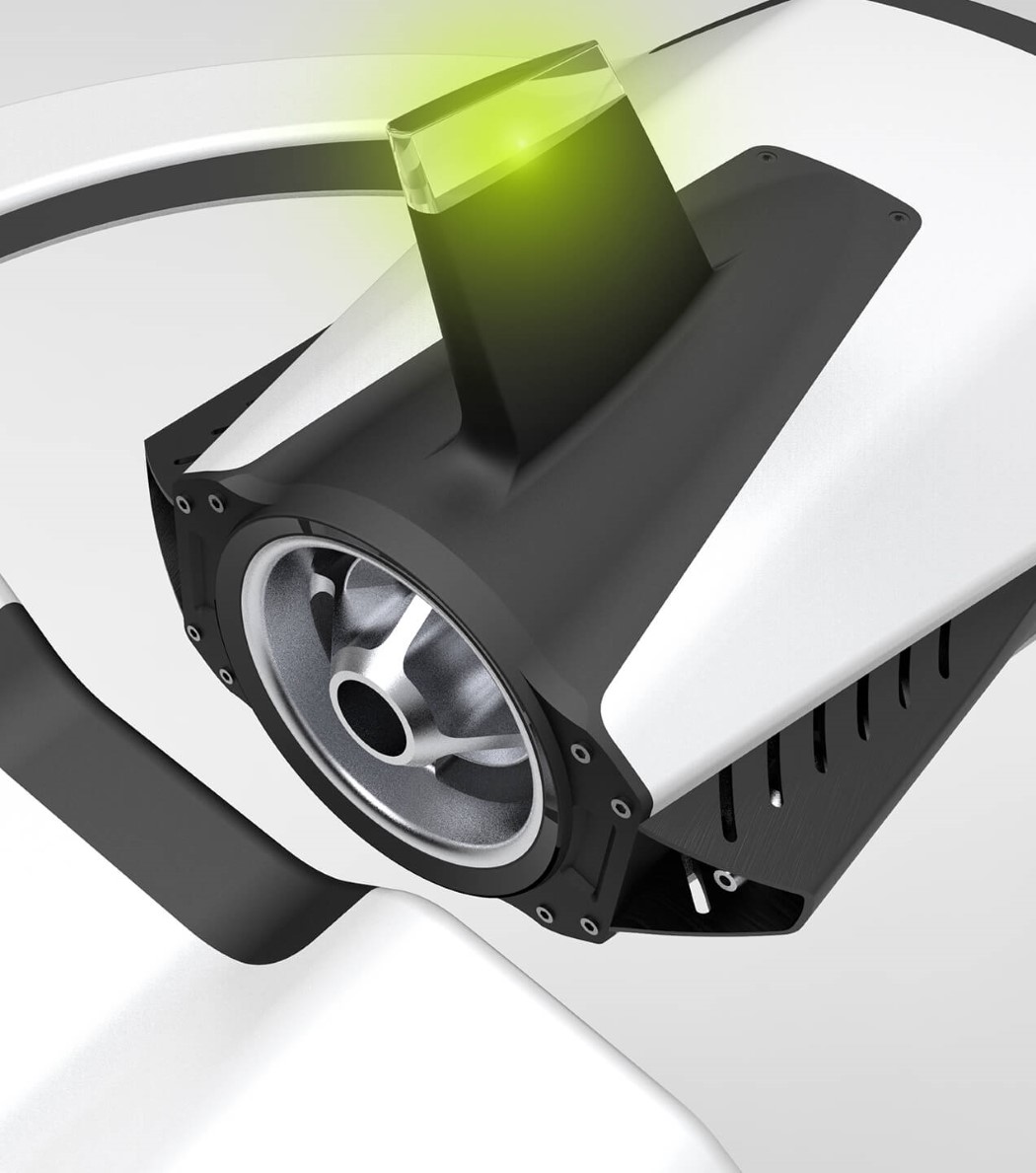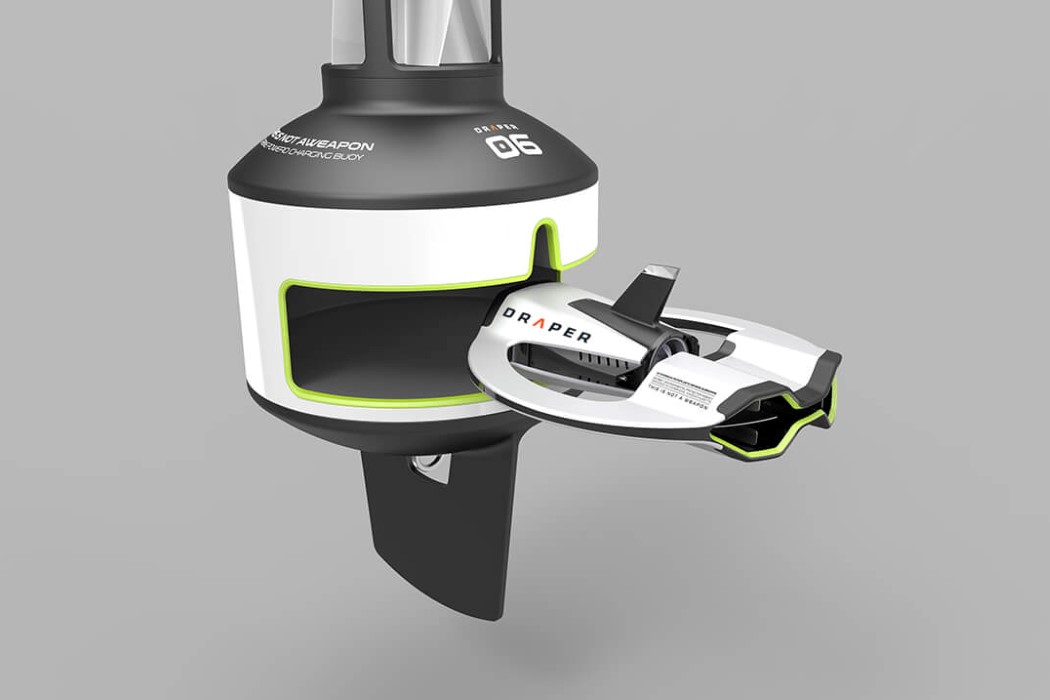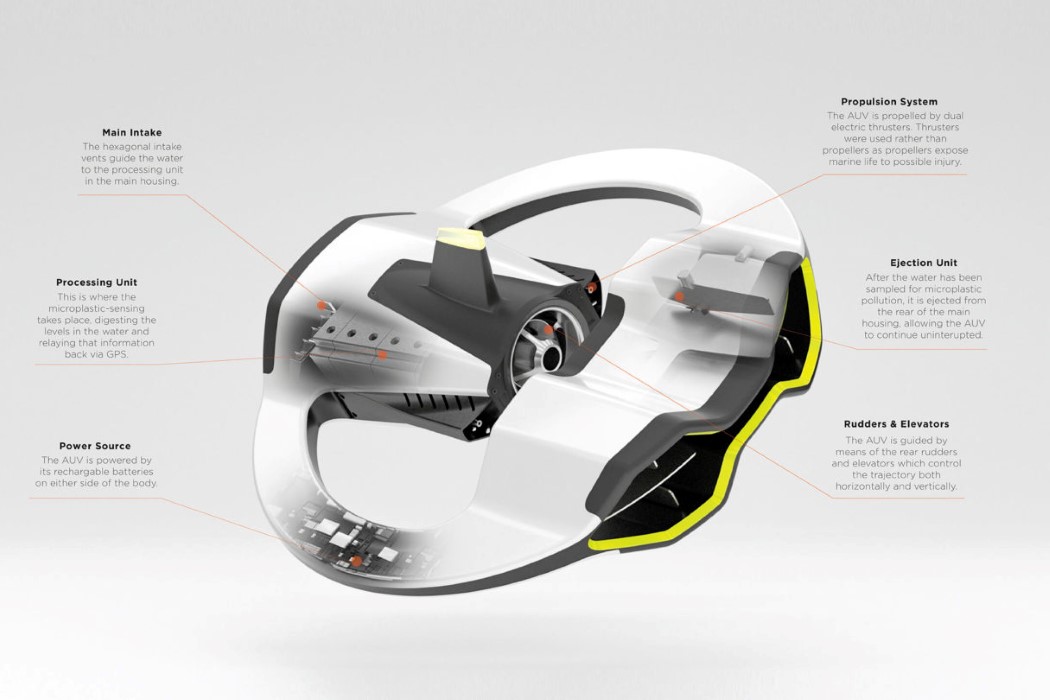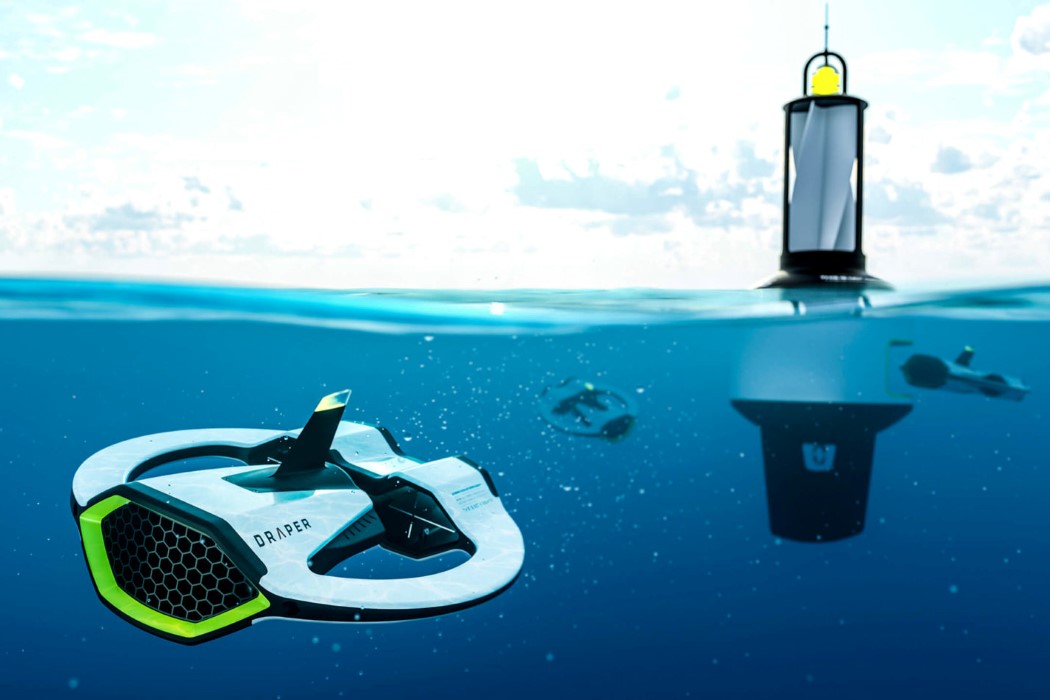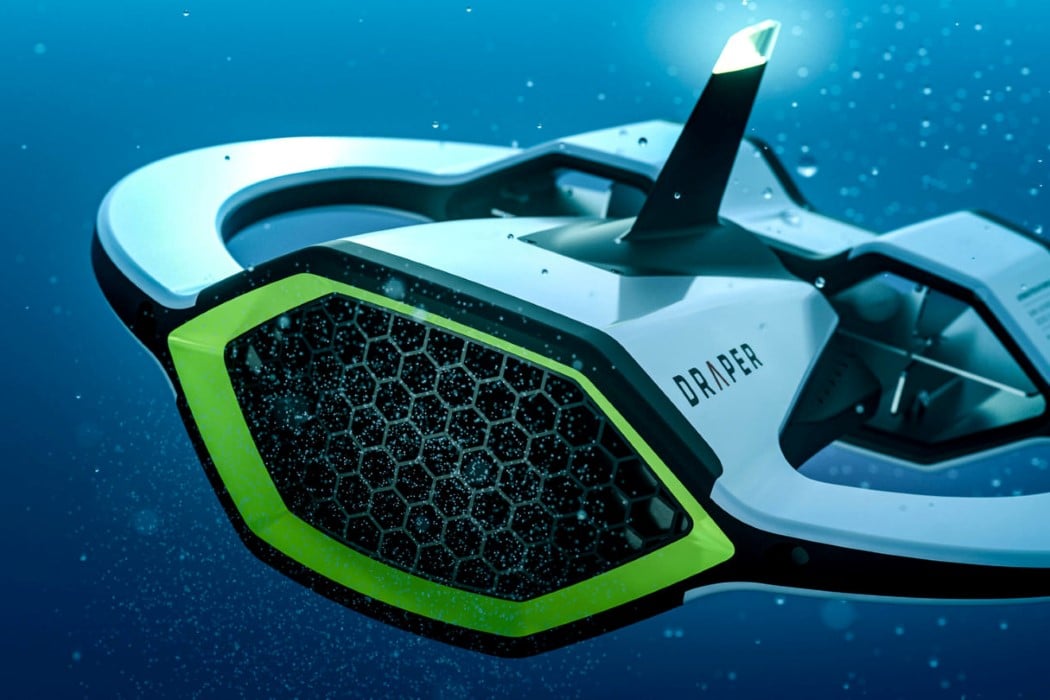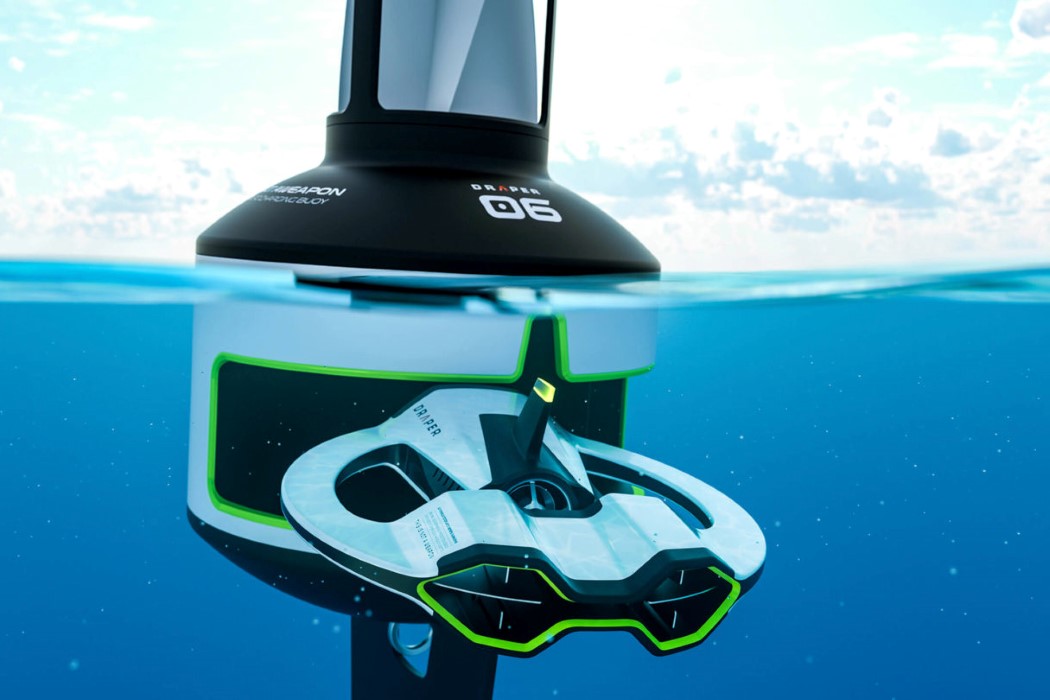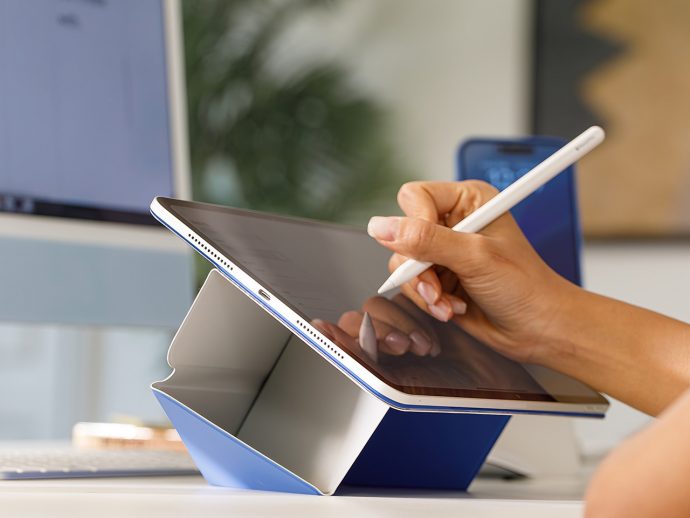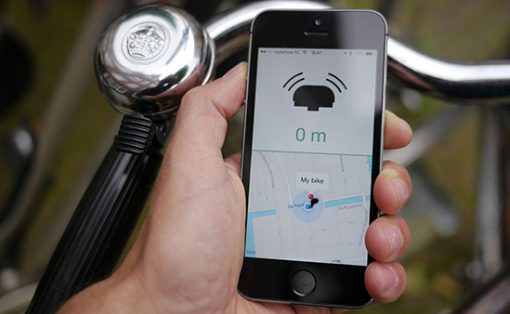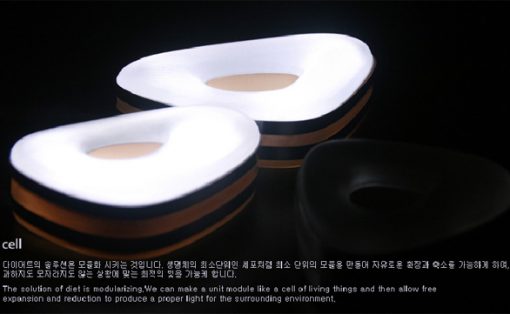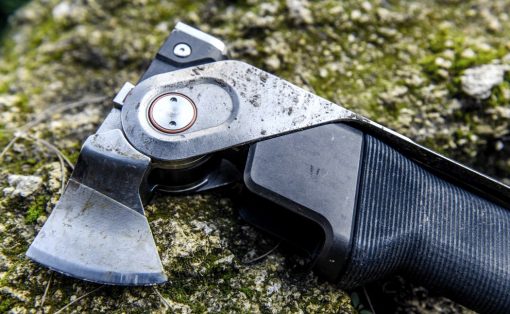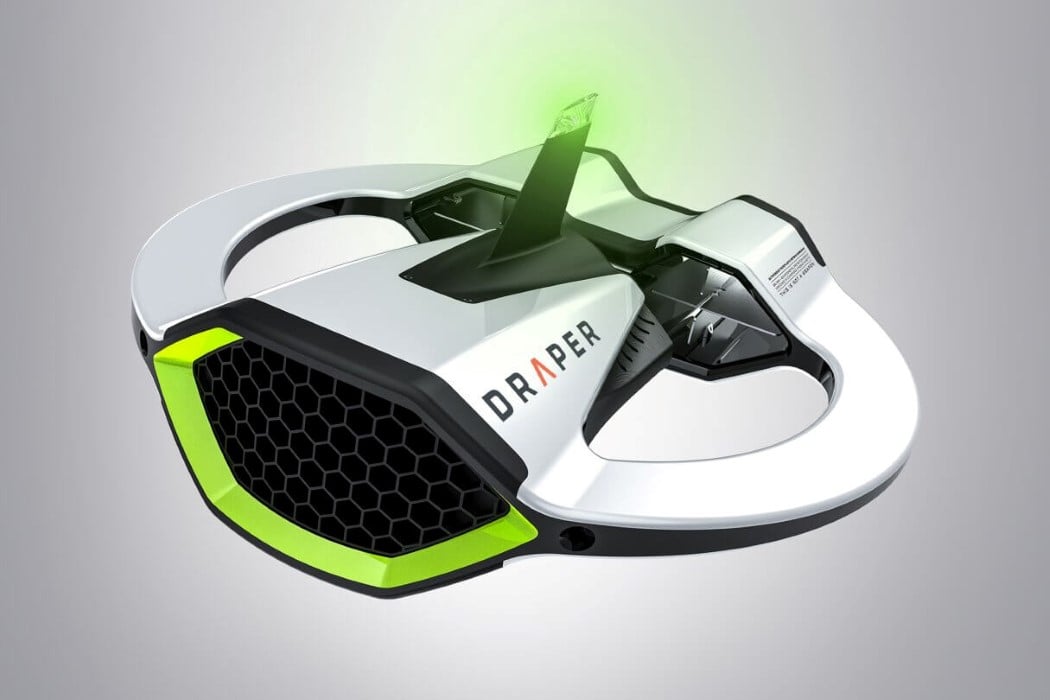
It’s always been my contention that to unlock a drone’s full potential, it should be equipped to do something humans can’t; like trove the ocean for something imperceivable to the human eye… plastic microparticles. The Draper Autonomous Underwater Vehicle is an award-winning autonomous drone that’s designed to swim through ocean waters, detecting and analyzing plastic particulate matter found in the water. “Draper’s AUV can detect and analyze invisible microplastics, and enable scientists to understand where they are originating from, where they are most prominent, and how to prevent them from contaminating our waters. When the AUV is deployed, it skims the top nine meters of the water where most microplastics are located, scanning for microplastics, testing for specific types, and ultimately relaying GPS coordinates into a heat map”, says Sprout, the studio that collaborated with Draper, a non-profit engineering R&D outfit.
The drone uses a pair of thrusters and rudders to control its navigation, while in-built proximity sensors and a GPS help the autonomous drone navigate through our vast oceans. The drone’s central processing unit sits in the mass at the front of the device, sucking water in from the front, testing it, and eliminating it from a rear exhaust, while the ring-detail around the drone houses its battery and electronics. Once the drone begins running low on batteries, it makes its journey to the nearest docking buoy that charges the device using wind-powered energy.
Designers: Sprout Studios and Draper
